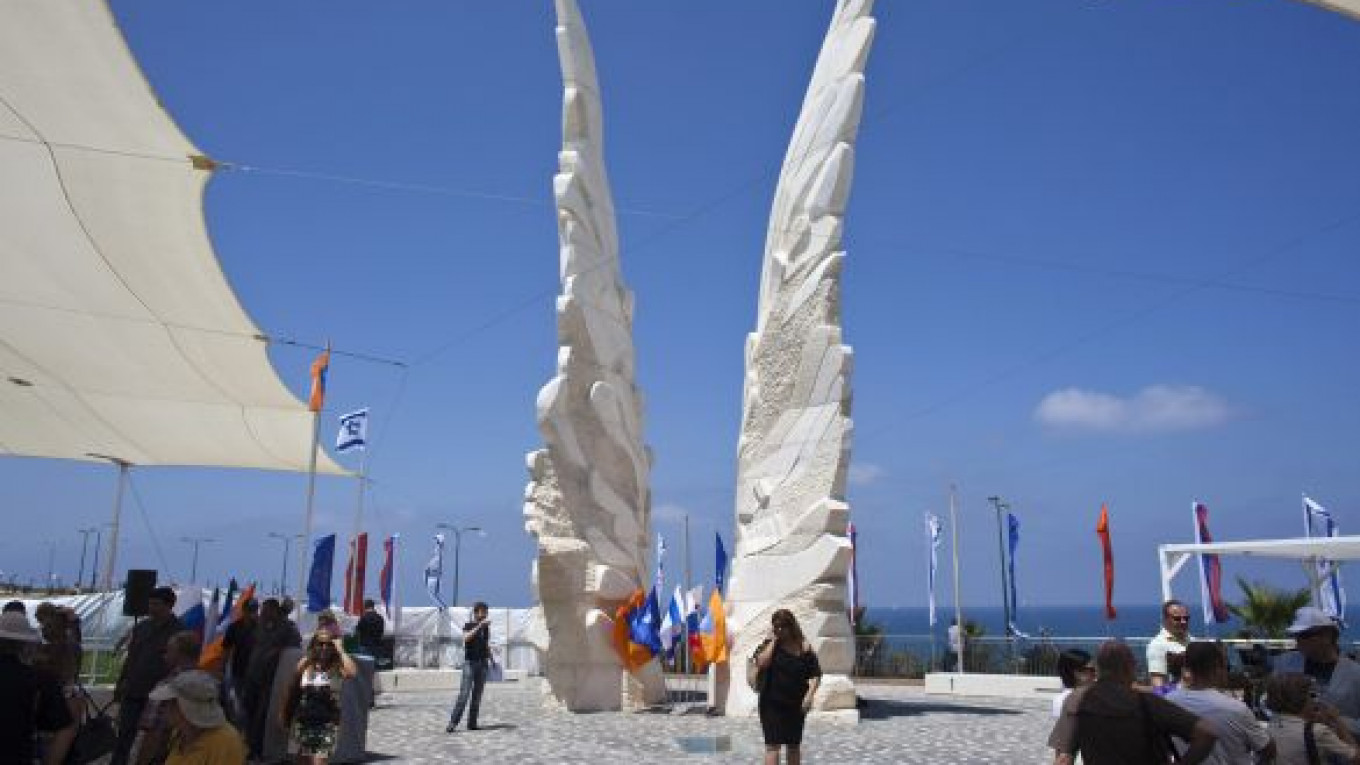Arab ambassadors delivered a clear message to Russia's special Middle East representative this month as Syria's envoy watched in silent discomfort: You are on the wrong side of history.
Russia's envoy, Deputy Foreign Minister Mikhail Bogdanov, differed during the radio discussion with the Moscow-based ambassadors. He and President Vladimir Putin say Russia is on a mission to stop the world from making a historic error over Syria.
Friday's shooting down of a Turkish military aircraft by Syrian air defenses may only widen the rift between the two schools of thought. Turkey has called a meeting of NATO allies on the incident and plans to approach the UN Security Council.
By using its UN Security Council veto in the past to blunt efforts to force out President Bashar Assad during 16 months of bloodshed, Russia has shown the United States and Europe that it will not let them decide the fate of other states.
But the display of geopolitical muscle has come at a price for Putin and Russia, further damaging Moscow's reputation in a region where upheaval and conflict have upset his efforts to revive his country's clout since he came to power in 2000.
"Russia finds itself in a very unpleasant situation: It has essentially put itself in opposition to the entire Arab world," said Fyodor Lukyanov, editor of the journal Russia in Global Affairs.
Back in the Kremlin and in charge of foreign policy again after four years as prime minister, Putin will try to mitigate the damage on a trip that will take him to the West Bank and Jordan on Tuesday after a visit to Israel on Monday.
"Putin needs to show that Russia is not against the Arab quest for democracy," said Georgy Mirsky, a Middle East expert at the Institute of the World Economy and International Relations in Moscow.
"He wants to minimize the negative effects of the Arab Spring, to show that Russia is not on the side of dictators."
Putin's second visit to Israel sends at least an implicit message to U.S. President Barack Obama, who has not visited the U.S. ally in more than three years as president.
"It's clear there is … in this visit a 'nudge' to the Americans, to tell them 'we are playing here too,'" an Israeli official said.
Putin's visit this week is not likely to produce progress in ending the crisis in Syria or the standoff over Iran's nuclear program, let alone the conflict between Israel and the Palestinians.
"I don't expect that in the talks on Iran or Syria he will stray even by a millimeter from the line we already know, though he may try to make it more user-friendly," the Israeli official said.
Along with the United States, China, Britain, France and Germany, Russia is part of a group of states negotiating with Iran to ensure that it does not develop nuclear weapons, and it hosted inconclusive talks with Tehran last week.
This trip — which follows visits to Europe, China, three former Soviet republics and a G20 summit in Mexico, where Putin met Obama — also seems likely to be richer in symbol than substance.
"He needs to be seen in the Middle East. If he declined to visit, it would mean Russia has given up in the Middle East and has been pushed out," said Mirsky.
Putin will stake a claim to deep roots for Russia in the region by visiting Bethlehem, which Christians revere as the birthplace of Jesus Christ, and opening a guesthouse for Russian pilgrims near the River Jordan, regarded as the place where Christ was baptized.
In Israel, he is to attend the opening of a monument honoring "the Red Army victory over Nazi Germany."
A Message from The Moscow Times:
Dear readers,
We are facing unprecedented challenges. Russia's Prosecutor General's Office has designated The Moscow Times as an "undesirable" organization, criminalizing our work and putting our staff at risk of prosecution. This follows our earlier unjust labeling as a "foreign agent."
These actions are direct attempts to silence independent journalism in Russia. The authorities claim our work "discredits the decisions of the Russian leadership." We see things differently: we strive to provide accurate, unbiased reporting on Russia.
We, the journalists of The Moscow Times, refuse to be silenced. But to continue our work, we need your help.
Your support, no matter how small, makes a world of difference. If you can, please support us monthly starting from just $2. It's quick to set up, and every contribution makes a significant impact.
By supporting The Moscow Times, you're defending open, independent journalism in the face of repression. Thank you for standing with us.
Remind me later.






